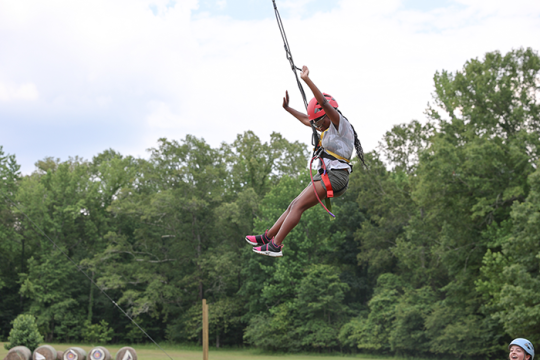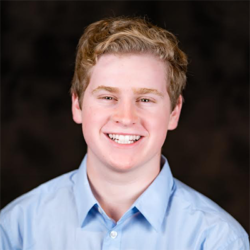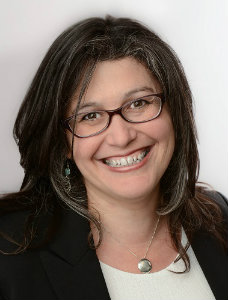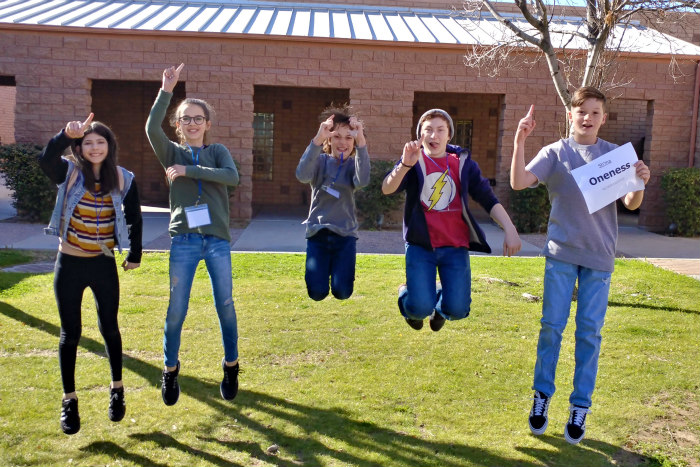
Editor's Note: This piece follows "Like Dawn Skimming the Horizon: Riding the Changes in NFTY (Part 1)", published in June 2020.
Change in the middle of a global crisis is simultaneously invigorating and exhausting. In NFTY, the Reform Jewish Youth Movement, we have more than an 80-year history of change, as each generation takes over our leadership and imagines new ways of connecting and creating.
The reality of COVID-19 sped up our change process. Like many other organizations across the world, we have had to adapt quickly to both the realities of our organization and the needs of our constituents. We have worked to lift up what is core to our mission and build for future strength, while respecting our past and bringing our community with us.
Throughout the past six months, in partnership with a wide group of stakeholders, NFTY has engaged in important and difficult conversations as we grappled with the core questions that evolved to drive our transition.
How might we evolve during this watershed moment, and which parts of the work should remain steadfast?
What assets and strengths do we have that could be utilized differently in our new reality?
Even in this moment of limited resources, where do we invest to continue core work and plant seeds for a strong future?
Where do we have silos and how can we support our work differently?
Here, we share with you our thinking on each of these questions and offer our process as a case study in change.
“How might NFTY evolve during this watershed moment and which parts of the work should remain steadfast?”
Community. Connections. Leadership opportunities. Teen-driven. Depth of content. Meaningful Jewish experiences. Fun.
These are just a few of the rallying calls we heard from teens about what they want from NFTY. Yes! We all want this for our teens, too – but how do we do that, both right now and in the future?
One step is by moving from a program provider to a platform provider. Andrew Keene, a former NFTY president, current World Union for Progressive Judaism board member, and one of the leaders of our NFTYx Alumni Network, wrote a piece for eJP titled “Shift Happens: From Program to Platform,” in which he argues for the shift from being program-oriented (where NFTY and so many organizations were) to being platform-oriented:
“Program-orientation inherently relies on the organization to be perpetual creators, and because of fluid expectations, pressures organizations to continuously create better programs. A program orientation is in fact the opposite of a platform orientation. In a program, the value comes from what the organization provides. In a platform, the value comes from both the ecosystem the organization creates and the interactions between people on the platform. Program participants are in ‘download’ mode; platform participants are in ‘upload mode.’”
We quickly realized that if NFTY was going to be successful in our new ecosystem, we needed to open our space and create a network of creators. In essence, we needed to rapidly shift from a program model to a platform model.
We like to talk about this as it if is obvious and easy – but the reality is very different. Our teens are used to staff supporting them in specific ways; our alumni are used to being on the sidelines; our staff are used to defining success as what programs they personally ran; and our organization is used to controlling every aspect of the NFTY experience.
To create space for this new approach, we used an age-old change strategy: We gave the new approach a new name. NFTYx was born as an open space for Jewish engagement, creativity, innovation, and community.
“What assets and strengths do we have that could be utilized differently in our new reality?”
One of the cornerstones of NFTY has always been the centrality of the adult/teen partnership. We know our strength has come from decades of staff working closely with teen leaders to create experiences that transform the lives of their peers. In our new staffing structure, however, we quickly realized we needed a wider network and support system than we previously had depended upon.
We asked: How might we embrace all the people in the NFTY community to strengthen our current and future system? What assets do we have that we can think differently about?
The answer came quickly: We needed help from our alumni. NFTY alumni have often gathered for their own interests, but we had never systemically gathered them to help current teens. This was the moment to think differently about their role and the wisdom, cultural knowledge, and passion for the organization that they had.
We gathered a small working group of alumni and created a new support system for our teens, the NFTYx Adult Mentor Network. Where traditionally NFTY experiences were planned by a partnership between URJ staff and teen leaders, NFTYx adult mentors would take on some of the traditional staff role in this new approach. This past summer, 100+ alumni were invited to help us pilot the network, and they’ve been supporting our teens ever since.
This experience has not only helped our teens create innovative, fun, and meaningful NFTY experiences but has also offered a new and meaningful point of connection for our alumni. One alum wrote:
“Serving as a NFTYx mentor has reminded me of the value and sanctity of the NFTY community. I feel so lucky to be a part of this initiative and reconnect with my roots through NFTY. During this year, which forced people to separate and disconnect, NFTY innovated to bring communities together, to build and foster relationships reaching across generations and geographic boundaries. I hope I have had as much of a positive impact on the teens as they have had on me!”
Now that we have completed the pilot phase, more NFTY alumni and Reform synagogue staff are being invited to join the NFTYx Adult Mentor Network. Combined with new teen opportunities such as task forces, academies, and fellowships, the NFTYx Adult Mentor Network expands the web of those supporting teens across the Reform Movement and creates a new structure for NFTY engagement.
“Even in this moment of limited resources, where do we invest to continue core work and plant seeds for a strong future?”
As the COVID crisis continued to unfold in summer 2020, it became abundantly clear that in-person gatherings would be out of the question. Our community of NFTY teens, parents, staff, and synagogue professionals rallied to address a pressing question: For decades, NFTY’s approach to engagement included three to four overnight retreats per region per school year. That reality was no longer viable, but doing nothing was not an option. How would we pivot?
The Union for Reform Judaism realized we needed a new way to deliver our core experiences. We launched RJ on the Go, a platform offering live and on-demand experiences for people of all ages. RJ on the Go offers family programming, camp experiences, and social justice opportunities, and it’s the perfect home for NFTYx virtual engagement. Using RJ on the Go, NFTY can now make informed, data-driven decisions about future programming, empowering us to offer more engaging content for our teens and deepening our impact on their lives and our world by connecting them with relevant social justice and Jewish learning experiences.
The NFTY team and teen leaders got to work creating new systems for our NFTY regions to create their own experiences on RJ on the Go. With excitement and relief, we were finally able to tell our teen leaders where their programs could live during our journey into the world of virtual programming.
Within a few weeks, more than 100 teen regional board leaders pushed the limits of the platform, creating pop-up programs of just a few hours and virtual kallot that lasted entire weekends. They engaged more than 1,000 of their peers, and we began to see our teen leaders emanate sparks of joy and pride that lit up our entire network.
We are thrilled by our success and ongoing learning in the virtual space and will continue to embrace this evolution in NFTY engagement, even when we can gather in person again.
“Where do we have silos, and how can we support our work differently?”
For decades, NFTY maintained its own silo within the URJ, keeping its own staffing structure, youth and adult lay leadership, and programming. Prior to COVID, the URJ had already been working to break down operational silos to deliver greater impact. The watershed moment that COVID created accelerated the need to question our core assumptions: What if NFTY weren’t so siloed? What if our work to support teens, holistically and authentically, was integrated throughout our entire organization?
This transformation was already taking root, but the impact of COVID-19 sped up the timeline. For example, NFTY Social Action Vice President Liana Friedman was already was working with the staff of the Religious Action Center of Reform Judaism (RAC) on isolated social justice programs. We expanded her role and strengthened NFTY’s social justice work by incorporating it into the pre-existing structures, support systems, and ongoing initiatives at the RAC.
This concept gained traction as other areas of the URJ began to put teen engagement and leadership at the center of our work. We began asking questions such as: If we are working to strengthen synagogues, what role should teen leaders play? If we are expanding our Racial Equity, Diversity, and Inclusion (REDI) training throughout the Reform Movement, how can we include teens in that core work? If we are crafting connections to Israel, how do we bring teens into the conversation? How can we leverage the full breadth and strength of the URJ to deepen teen engagement, rather than limiting that work to one department?
This change process is just beginning, but there is no doubt that the questions we are asking are different than those we previously explored. The responsibility to partner with our teens is no longer owned by the NFTY and youth programs staff alone; the entire URJ is committed to the task.
In Conclusion…
These last eight months have been challenging, exhilarating, painful, and beautiful.
There have been tough meetings with alumni sharing petitions for change, difficult conversations with frustrated teens, and sitting with clergy to understand their needs and concerns. These voices are important and affirm what we already knew: The current teens, the alumni, and the circle of parents and synagogue leaders who create the NFTY landscape care deeply about this community. As we have worked together, many of these conversations have transformed into opportunities: new approaches to synagogue-hosted programs; people stepping up to be NFTYx Adult Mentors; fundraising campaigns led by our alum; and teens creating new ways of engaging their peers.
As one generation passes NFTY to the next, we build on our history and create a vibrant future together.
Over the last few months, we have begun to see a future of NFTY take shape. We have been filled with hope by letters from alumni in the NFTYx Adult Mentor Network sharing their joy at this new opportunity; amazing experiences run in virtual platforms with teens laughing and learning together; and moments of clarity for our staff and teen leaders as they partner to move our work forward.
Past NFTY President Maya Levy challenged us to “ride this change like dawn skimming the horizon.” We are happy to say that our future is coming into focus, the storm has calmed down, and we can see the sun rising on a new day.
Are you a NFTY alum or synagogue professional? Please consider joining us as a NFTYx mentor. Parents, alumni and interested adults are also invited to get a taste of NFTY Convention and connect with other stakeholders at our special adult and donor program opportunities.
Have something to say about this post? Join the conversation in The Tent, the communications and collaboration platform for congregational leaders of the Reform Movement. You can also tweet us or tell us how you feel on Facebook.
Related Posts
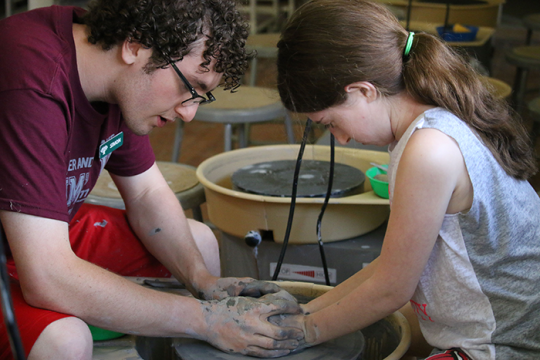
Embracing Jewish Identity, Learning to Lead: The Lifelong Benefits of Working at Summer Camp
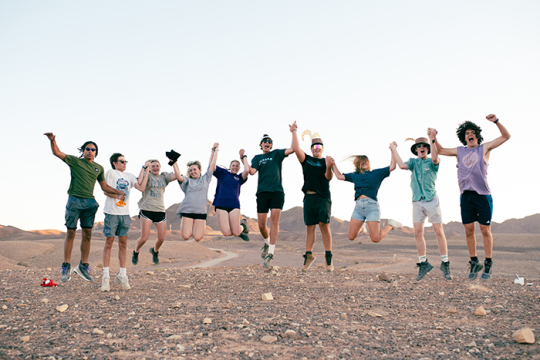
Empowering Tomorrow: The Enduring Impact of Youth & Teens in Reform Judaism's 150-Year Journey
